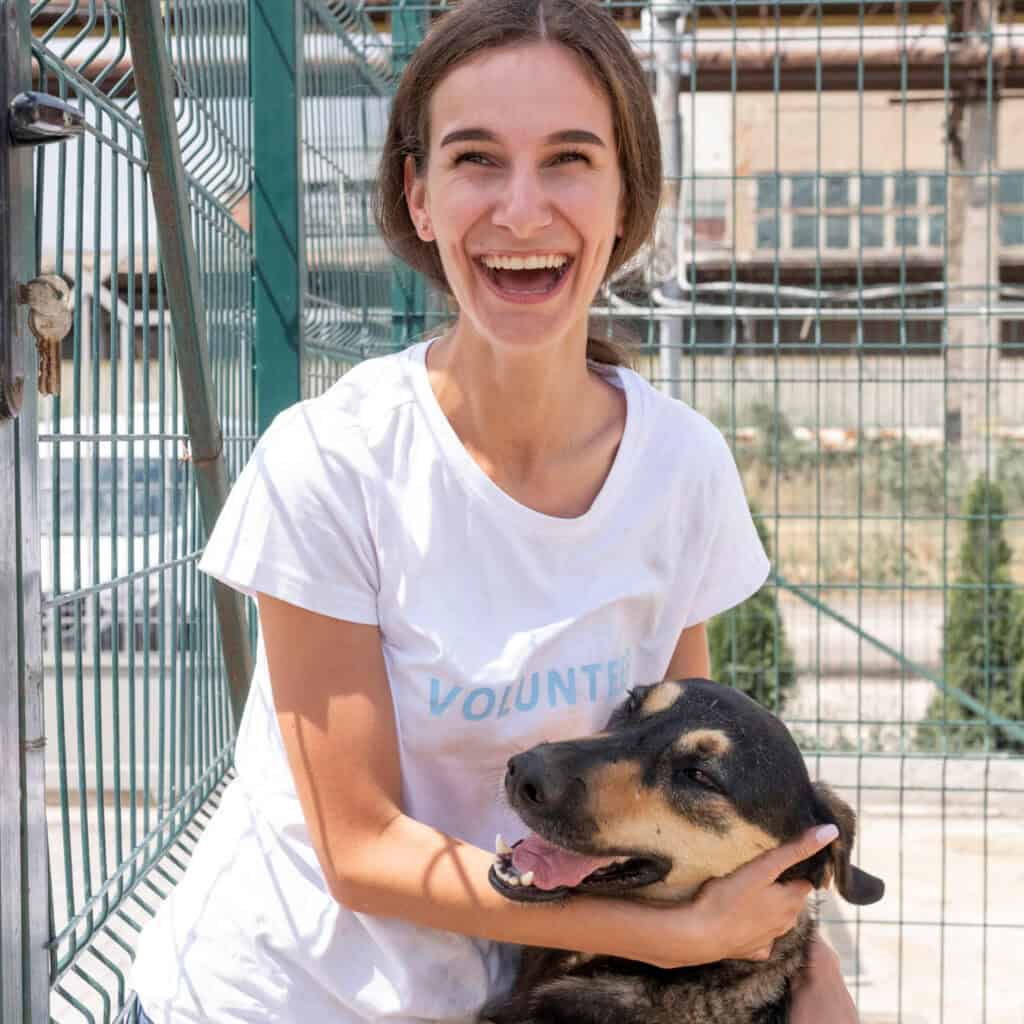Check how old is your pet in human years using our Pet Age Calculator.
Finding the perfect furry companion can be a rewarding journey, but it often comes with its own set of challenges. That’s where pet-friendly rescue organizations step in.
These dedicated groups not only provide a safe haven for animals in need but also connect them with loving homes. As someone who’s passionate about animal welfare, I know how crucial these organizations are in making a difference in countless lives.
Whether you’re looking to adopt or simply want to support a good cause, understanding the role of these rescue organizations can be enlightening.
They work tirelessly to ensure that pets find their forever homes while promoting responsible pet ownership. Join me as we explore the incredible world of pet-friendly rescue organizations and discover how you can get involved in this heartwarming mission.
Table Of Contents
- 1 Understanding Pet Friendly Rescue Organizations
- 2 Importance Of Pet Adoption
- 3 How To Find Pet Friendly Rescue Organizations
- 4 What To Expect From A Rescue Organization
- 5 Tips For Working With Pet Friendly Rescue Organizations
- 6 Conclusion
- 7 Frequently Asked Questions
- 7.1 What are pet-friendly rescue organizations?
- 7.2 Why is adopting from rescue organizations important?
- 7.3 How can I find a pet-friendly rescue organization?
- 7.4 What should I expect during the adoption process?
- 7.5 What are the benefits of adopting a pet from rescue organizations?
- 7.6 How can I support pet-friendly rescue organizations?
Understanding Pet Friendly Rescue Organizations
Pet friendly rescue organizations specialize in finding suitable homes for animals in need, focusing on adopting out pets to loving families. These organizations assess animals’ behaviors, health, and needs, ensuring a proper match with potential adopters.
Key features of pet friendly rescue organizations include:
- Adoption Programs: They implement structured programs that promote transparency and support for adopters throughout the process.
- Foster Care Systems: They utilize foster homes, allowing animals to receive care in a more domestic environment, enhancing their socialization and readiness for adoption.
- Community Education: They conduct outreach and workshops, educating the public about responsible pet ownership, the importance of spaying/neutering, and recognizing signs of animal abuse.
- Collaboration: They work with local shelters, veterinary clinics, and fellow rescue groups to increase awareness and streamline their efforts in helping animals find homes.
Pet friendly rescue organizations often focus on specific breeds or types of animals, which allows them to provide tailored care and adoption pathways.
This targeted approach enhances the chances of successful placements and fosters a community of engaged adopters.
Importance Of Pet Adoption
Pet adoption from rescue organizations significantly contributes to animal welfare. It addresses overcrowding in shelters and promotes the shift towards responsible pet ownership.
Benefits For The Pets
- Shelter pets gain a second chance at a happy life, ensuring they experience a nurturing home environment.
- Many shelter pets are already spayed/neutered and microchipped. These measures enhance their chances of remaining healthy and safe.
- Adult shelter animals often have calmer temperaments, providing a more stable transition to new homes.
- Pets from rescues express deep appreciation for their new environments. Their resilience and gratitude stem from previous hardships.
Benefits For The Adopters
- Adopters save lives, directly reducing the number of homeless animals in shelters.
- Prepared pets—spayed/neutered, vaccinated, microchipped—lower initial pet care costs.
- Adoption allows adopters to meet pets beforehand, helping find the right fit for specific family dynamics or lifestyles, including interactions with children and existing pets.
- Studies confirm that adopted pets bond with their owners just as well as purchased animals, offering fulfilling companionship.
- Adopters actively support community animal welfare efforts, decreasing demand for commercial breeding operations.
How To Find Pet Friendly Rescue Organizations
Finding pet-friendly rescue organizations involves utilizing both online resources and engaging with the local community. Each method provides valuable insights into available services that support animals in need.
Online Resources
- Animal Welfare Directories: I often consult comprehensive directories like Wikipedia’s list of animal welfare organizations. These directories feature various groups such as the RSPCA and BC SPCA, which are dedicated to pet rescue across different regions.
- Specialized Directories: I recommend using platforms like Safe Havens for Pets. This service assists individuals facing domestic violence or homelessness by providing a searchable database of pet-friendly shelters and rescues.
- Local Shelter Websites: Visiting the websites of local animal shelters often reveals information on adoption services, volunteer opportunities, and pet retention programs. For example, Fairfax County Animal Shelter emphasizes the importance of keeping pets with their families.
- Social Media and Online Communities: I follow online communities and social media pages where shelters promote events. These events, such as dog walks or foster programs, give shelter animals much-needed exposure and care.
Local Community Outreach
- Engagement with Local Councils: I connect with local Citizen Corps Councils or emergency preparedness groups. These organizations often include pet evacuation and shelter planning, thus linking with local rescues.
- Municipal Resources: I reach out to municipal animal control and shelter facilities for information on local rescues. They provide valuable resources and guidance on pet-friendly services.
- Pet Events and Adoption Fairs: I attend local pet fairs, adoption events, or preparedness demonstrations. These gatherings allow me to meet representatives from rescue organizations and learn about available pet-friendly resources firsthand.
Utilizing these methods effectively connects me with organizations dedicated to pet welfare and facilitates finding loving homes for pets.
What To Expect From A Rescue Organization
- Support Services: Many rescue organizations offer services beyond standard rescue efforts. They provide free or low-cost veterinary care, access to pet food pantries, and volunteer pet care. For example, PAWS NY aids NYC residents at risk of losing pets due to financial or physical hardships.
- Adoption Process: The adoption process typically involves submitting an application, attending an interview, providing references, and occasionally undergoing a home visit. This ensures a suitable match for the pet and adopter. After approval, I meet the pet and sign an adoption contract, which often includes a donation or fee that varies based on the pet’s age or health status.
- Adoption Philosophy: Most organizations emphasize trust in adopters’ intentions. They promote responsible pet ownership through education and non-judgmental advice. Fee structures often adapt to encourage the adoption of older or special needs pets, while many shelters rely more on grants and donations than on adoption fees.
- Mission and Impact: Leading organizations, such as North Shore Animal League America, prioritize no-kill policies. They focus on urgent medical care, training, and placing thousands of pets in permanent homes annually. They also engage in outreach and educational programs that benefit the community.
- Volunteer and Foster Opportunities: Many rescues welcome volunteers and foster homes to help care for pets in need. This provides meaningful ways for me to contribute to animal welfare while supporting pets awaiting adoption.
Tips For Working With Pet Friendly Rescue Organizations
- Build Partnerships: Collaborate with local animal care organizations, nonprofits, businesses, and emergency management agencies to combine expertise, resources, and visibility for rescue efforts.
- Develop Clear Agreements: Draft memoranda of understanding (MOUs) that outline roles and responsibilities among all parties to enhance cooperation, especially for pet-friendly shelters and evacuation strategies.
- Engage Community & Volunteers: Organize public education campaigns, adopt-a-pet events, and training sessions to raise awareness and motivate participation from volunteers and local leaders.
- Focus on Spay/Neuter Programs: Implement programs to mitigate overpopulation, reducing euthanasia rates and improving shelter outcomes significantly.
- Maintain Mutual Respect and Communication: Foster an environment of trust and respect through open communication between rescue organizations, emergency planners, and the community for optimal success.
Key Takeaways
- Understanding Adoption: Pet-friendly rescue organizations are crucial for finding loving homes for animals by assessing their behaviors and needs during the adoption process.
- Community Education: These organizations often conduct outreach programs promoting responsible pet ownership, the importance of spaying/neutering, and awareness of animal welfare.
- Benefits of Adoption: Adopting from rescue organizations not only saves lives but also provides pets with essential health measures, while adopters enjoy lower initial costs and fulfilling companionship.
- Finding Resources: Utilize online directories, local shelter websites, and community outreach events to discover pet-friendly rescue organizations and their services.
- Adoption Philosophy: Most rescues emphasize responsible pet ownership, with a focus on education and support for adopters throughout the adoption process.
- Volunteer Opportunities: Many rescue organizations welcome volunteers and foster homes, offering meaningful ways for individuals to contribute to animal welfare efforts.
Conclusion
Exploring pet-friendly rescue organizations opens up a world of possibilities for both animals and adopters.
By supporting these organizations, I’m not just helping pets find homes but also contributing to a larger movement of animal welfare. Each adoption story is a testament to the power of compassion and community engagement.
Getting involved through volunteering or fostering can amplify this impact. It’s rewarding to see the difference we can make together.
If you’re considering adopting a pet or supporting a rescue, remember that every effort counts. Together, we can create a brighter future for animals in need.
Frequently Asked Questions
What are pet-friendly rescue organizations?
Pet-friendly rescue organizations are non-profit groups dedicated to helping homeless animals find loving homes. They provide structured adoption programs, foster care, and community education to encourage responsible pet ownership and animal welfare.
Why is adopting from rescue organizations important?
Adopting from rescue organizations helps reduce shelter overcrowding, gives animals a second chance at life, and promotes responsible pet ownership. It also fosters a connection between adopters and their new pets, benefiting both parties.
How can I find a pet-friendly rescue organization?
You can find a pet-friendly rescue organization by searching online, engaging with local communities, or attending pet events. Websites like Petfinder and Adoptapet are great starting points for finding reputable rescue groups.
What should I expect during the adoption process?
The adoption process typically includes filling out an application, undergoing an interview, and having a home visit. This ensures that the pet will have a safe and loving environment. Some organizations also provide support services after adoption.
What are the benefits of adopting a pet from rescue organizations?
Adopting a pet from a rescue organization often costs less than buying one from a breeder. Benefits include saving an animal’s life, receiving spayed/neutered pets, and having the opportunity to meet them beforehand, ensuring a good match.
How can I support pet-friendly rescue organizations?
You can support rescue organizations by adopting pets, volunteering, fostering animals, donating supplies or funds, and spreading awareness about their missions. Engaging in community events can also help promote their efforts to find homes for animals.





